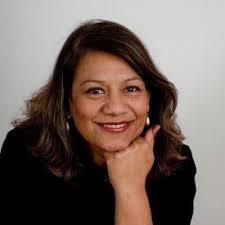The speech made by Valerie Vaz, the Labour MP for Walsall South, in the House of Commons on 29 March 2023.
I thank my hon. Friend the Member for Enfield, Southgate (Bambos Charalambous) for securing this debate and for allowing me to speak. I knew that the hon. Member for Strangford (Jim Shannon) would be here, and I wish him a belated happy birthday for last Saturday. I, too, want to acknowledge the role that my hon. Friend the Member for Worsley and Eccles South (Barbara Keeley) has played in securing widespread support for the BBC Singers. The fight is not over; she will continue, and we will support her.
I add my voice to everything that my hon. Friend the Member for Enfield, Southgate, has said, although, hon. Members will be pleased to hear, not in song—I will stick to words. This is an extremely important topic. I start with classical music’s large body of work. I was taught the piano by my mother Merlyn when I was quite young. My first piece was Bach’s “Well-Tempered Clavier”, prelude No. 1. I still empty the room when I practise it. My daughter Liberty plays the violin and piano. She did an extended project for her A-level, entitled “Does exposure to music make you more intelligent?” She came down saying yes, it does, but if we have active participation.
I appreciate that the Minister is going to give birth fairly soon. She does not need to buy “Baby Mozart”, but I encourage her to listen to relax. It is important for children to hear music in the womb it, and later on. The brain waves change when people listen to music. The same can be said of classical Indian music—Ravi Shankar with the sitar, which takes years to learn how to play, has exactly the same effect.
We know how important music is for children. When I first came here in 2010, I asked the then Education Secretary to make sure that there is a piano in every school, because I grew up surrounded by music. José Abreu suggested that children can benefit from it and formed El Sistema, which has transformed children’s lives in Venezuela. It has now been rolled out throughout the world.
We are lucky to have very good radio here. Classic FM is a must to listen to, and public broadcasting is important, as my hon. Friend the Member for Enfield, Southgate, mentioned, as did the hon. Member for Woking (Mr Lord) in his intervention. We have BBC Radio 3—I do not know whether other hon. Members listen to “Building a Library”, but it is a fantastic programme. The Proms is the biggest music festival in the world—way before Glastonbury. It is so important that international artists come here from around the world. What our public broadcasters do is so important.
I stumbled upon a documentary about the amazing genius that is Daniel Barenboim on BBC Four last week. The BBC had captured him at 25, conducting a masterclass. It was amazing. Even if someone did not know anything about music, they could see how he explained to the two pianists how they could change and make their music sound better. Added to that, he formed the West-Eastern Divan Orchestra with Edward Said. That is how amazing he is. They brought together young people from Israel, Palestine, Egypt and all across the middle east to play together. Daniel Barenboim said that when they play music, they are all equal—they are just playing Beethoven. It is so important that that continues. I missed the Prom where Martha Argerich and Daniel Barenboim played the piano together, but it was captured at the end of the documentary. I suggest that everyone tries to listen to it.
Music is inspirational. We can see our achievement as human beings, because a few notes can show what creative people we are. It can start with classical music and move to other forms of music such as jazz and modern music. It forms the basis of every aspect of our life. We need to protect that, because music moves us—it moves our emotions and it speaks to our soul. I hope that the Minister will protect it.
